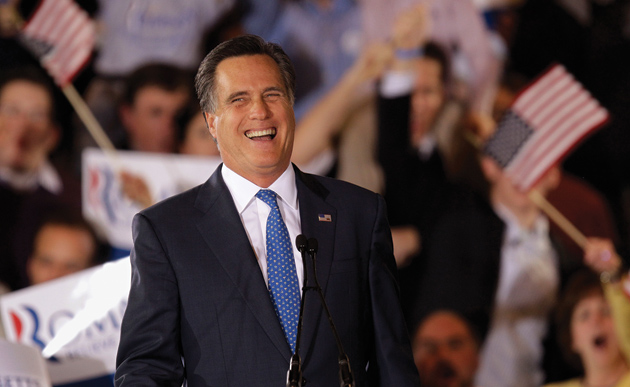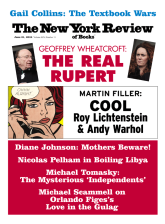Everyone has noticed by now the non-laugh laugh of Mitt Romney, a kind of half-stifled barking. But what does it mean? It is blurted out as abruptly as it is broken off. Is it a kind of punctuation, part comma, part full stop, part interrogatory mark? What, if anything, is it trying to convey? Why does it seem more like coughing or burping than laughter?
Does it mean: “I know you are saying something critical about me, and I don’t know how to answer it, so I’ll just pretend that you did not mean it seriously”?
Or: “I want to show I am just a regular fellow, so I’ll try out my regular-fellow laugh”?
Or: “I hope you will take what I just said as something humorous, though I doubt it, but I’ll see if I can start a laughing chain reaction”?
Or: “I want to change the subject, but there is no natural way to do that, so I’ll just throw in this comic rictus as a non sequitur”?
Or: “ The Cheshire Cat could evanesce by leaving just a smile behind, so maybe I can avoid attention by disappearing away from my laugh”?
Hard-pressed for a semiological deciphering of the Romney laugh, I turn to Milan Kundera’s etiology and taxonomy of senseless laughter, contained in his essay “The Comical Absence of the Comical (Dostoyevsky: The Idiot).” He finds examples of humorless humor in the defensive-aggressive response of Prince Mishkin to other people’s senseless laughter.
Or he sees it as Mishkin’s ill-focused expression of defiance. Or he sees it in a woman’s derisive response to Mishkin’s inconsequence.
But then Kundera describes an experience of his own. He saw a man standing uncomfortably in a crowd, not knowing what to do, and therefore he laughs when others do, not knowing why they do it but hoping this will make him fit in:
He opens his mouth wide, emits a very loud sound, and gesticulates: that is to say, he is laughing. But he’s not laughing like the rest of them: his laughter feels like a copy among originals. If I have never forgotten this tiny episode it is because it was a brand-new experience for me: I was seeing a person laugh who had no sense of the comical and was laughing only to keep from standing out from the crowd, like a spy who puts on the uniform of a foreign army to avoid recognition.
Is this the best description of Romney’s idiosyncratic barking? Does he “emit a very loud sound” to put on the uniform of ordinary citizenness that is foreign to him, hoping “to avoid recognition”? If so, he is no more successful than was the laughing man Kundera observed. If anything, such random outbursts just make everyone else feel uneasy. Rather than fitting in, he drives off.
He is unlike the Mishkin whose laughter Kundera describes as a kind of reverse contagion, making the world around him succumb to “humorless laughter.” Romney would apparently like to resemble Dostoyevsky’s “Idiot,” but that kind of idiocy is beyond him.
This Issue
June 21, 2012
Real Cool
How Texas Messes Up Textbooks
Mothers Beware!




